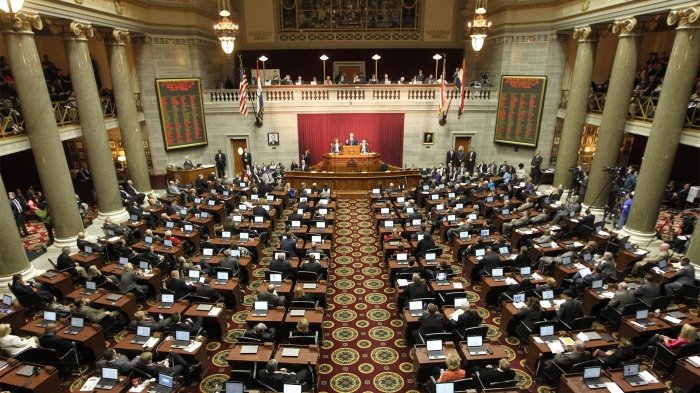Rep. Wes Rogers’ prefiled bill follows four separate sports wagering proposals
B
ringing bicameral and bipartisan sports betting legislation to an already busy gaming agenda, Missouri Rep. Wes Rogers prefiled a sports betting bill last week, which comes after four separate sports wagering proposals were profiled last month by Senate Republicans.
One of these bills would legalize both betting and video lottery terminals (VLTs), and these five proposals join additional measures to allow riverboat casinos to operate on land as well as two additional bills that would crack down on illegal gambling.
Similar bills in 2020, which would allow the state’s 13 casinos to operate retail and online sportsbooks, advanced out of committee last year before the COVID-19 pandemic curtailed the session and pushed gaming measures to the legislature’s backburner, the Action Network reports. Now facing dwindling tax revenues and rising health care costs, gaming backers in Jefferson City hope gaming can be one piece of a budget that was already slashed by nearly half a billion dollars in 2020.
Though lawmakers largely seem open to legal betting, elected officials will have to balance new sports betting efforts with the ongoing push from VLT interests. Though legal, regulated video gaming terminals in truck stops in fraternal organizations would prove more lucrative than even statewide mobile sports betting, but they are less politically palatable in a state that has largely confined organized gambling to riverboats on its eastern and western borders.
The solution to balance sports betting and VLT interests in the legislature is just one of many questions that could help determine the passage of legal wagering in 2021.
The first measure introduced in the House, Rogers’ bill is also among the most industry-friendly. It proposes lower gross gaming revenue taxes than any of its Senate counterparts and avoids the excess fees to regulatory bodies and professional sports leagues sports betting interests have lobbied against:
- Statewide Online Betting Permitted: Yes
- Retail Betting Permitted: Yes
- Eligible Betting Establishments: The state’s 13 casinos
- Online Skin Count: As many as 39, three for each casino
- Regulatory Body: Missouri Gaming Commission
- College Prop Bets Allowed: Yes
- Sportsbook Tax Rate: 6% of adjusted gross revenue
- State Regulatory Fees: $25,000 application fee, $10,000 administration fee every year, $5,000 license renewal every five years
- League Data Fees: No, but leagues may request to limit, restrict or prohibit bets placed on their events and/or individual player prop bets
- League Royalty Fees: No
Of the three standalone Senate bills, Rogers’ proposal is most similar to Senate Majority Leader Caleb Rowden’s, which has slightly higher taxes (6.75%) and regulatory fees ($50,000 for application, $20,000 annual administration and $10,000 license renewal every fifth year) but leaves most core tenants the same.
The bicameral pair would be a logical starting point to quickly pass sports betting out of both houses in 2021, but it will have to compete with not just other sports betting bills, but the more politically complex push for VLTs.
Veteran Missouri lawmakers Denny Hoskins has filed two of the four 201 Senate sports betting bills, one that would just legalize wagering on sporting events and one that would also legalize VLTs. After serving in the House from 2009 through 2017, Hoskins has introduced VLT legalization legislation in his last five years in the Senate and will be a major factor to any gaming expansion hopes in 2021.
Meanwhile, Senate President Pro Tem Dave Schatz and Sen. Dan Hegeman filed separate bills that would restrict illegal gambling operations, ostensibly targeting the hundreds of illegal video terminals currently operating across the state. Lawmakers will face decisions on legalizing and regulating these types of machines, or keeping the ban and cracking down on violators.
No state with legal VLTs has allowed them to accept sports bets, including neighboring Illinois. Hoskins’ bill would keep sports betting authorization exclusively to casinos, but they would likely oppose hundreds of new machines competing for gambling dollars even if it meant legal sportsbooks.
Finding a solution to these machines and potential sportsbooks are just two matters to take up on top of the hundreds of other bills lawmakers are set to consider when the 2021 session begins Wednesday.
Adding a Democrat-sponsored House bill, especially one with such friendly terms for sportsbook operators, is another positive step for sports betting backers’ legalization efforts this year, but it will have to fight for political oxygen in what will be a long and complex legislation session.



